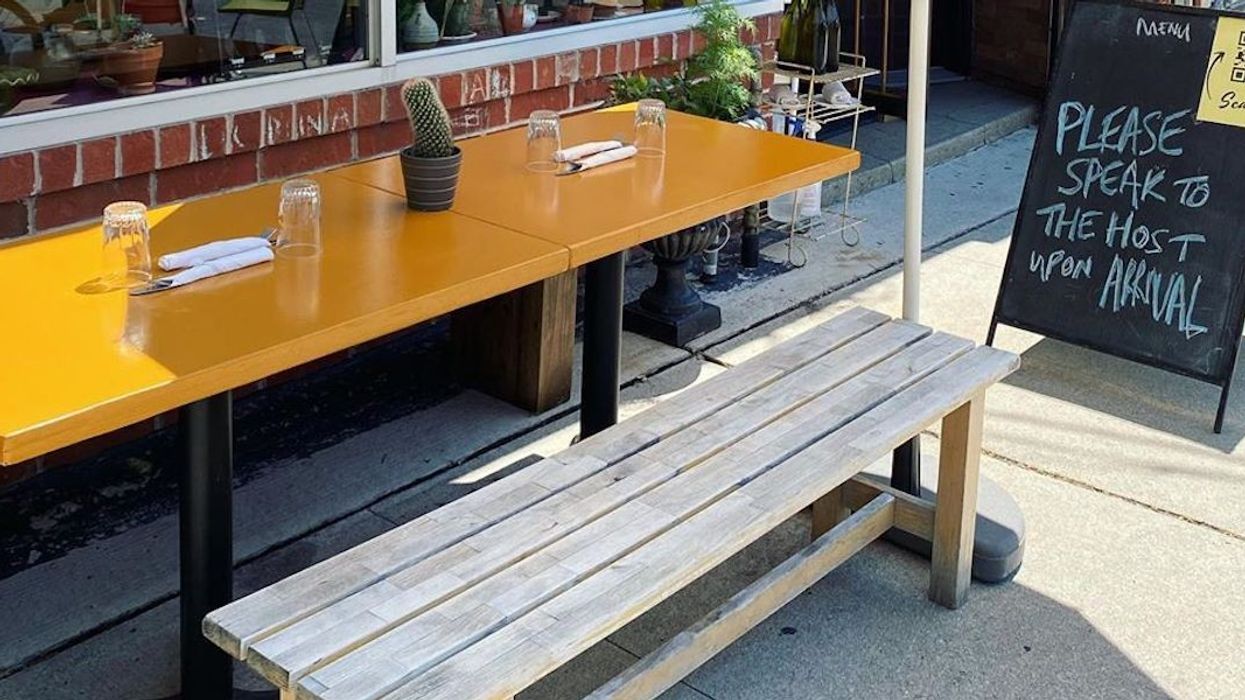In an effort to extend outdoor dining season despite chillier forecasts, the City of Toronto is permitting portable heaters as part of CaféTO.
The move means portable heating devices, including fire-fuelled appliances like propane heaters, will be allowed on all varieties of outdoor patios in the city, sidewalk and curb lane setups included.
The CaféTO program was launched at the end of June, supporting more than 760 restaurants across Toronto in their continued -- but safe -- operations amid the COVID-19 pandemic. This includes over 400 curb lane closures and sidewalk cafes, occupying more than 9,000 metres of public right-of-way, as well as 44 parklets. The program is due to end in late fall, pending snowfall, and the allowance of heaters in outdoor dining spaces means eatery operators can maximize on patio season while maintaining physical distancing.
“We are doing everything we can to support our local restaurant industry. I heard this request from the restaurant industry and took action to help allow portable heaters to safely keep CaféTO installations and patios warm, even in late October and November, to help extend the season," said Mayor John Tory.
"I want to thank City staff for working to find a way to make this possible to help restaurants as much as we can right now.”
READ: Has COVID Really Resulted in Toronto Residents Fleeing to the Suburbs?
The guidelines for safe use of these heating devices, developed by Toronto Fire Services, will be available to patio and café operators today; operators must follow them closely, the city says. Locations using portable heaters will be monitored for safe use, and guidelines will be enforced by municipal bylaw officers as well as Toronto Fire Services staff. While still stringent, the guidelines set by Fire Services streamlines a process that used to require documents and applications.
Some examples of the guidelines operators -- and patrons -- can expect to see include only using heaters that meet federal and provincial safety requirements, installing and storing units per the manufacturer’s instructions, and removing heaters from the curb lane when the café is not in use.
As per CaféTO safety and accessibility guidelines, tents and structures are still not permitted in curb lane closures. A key component of the program is that all locations meet important safety, accessibility and physical distancing guidelines; across the city, officials have installed nearly 400 asphalt curb ramps, contributing to accessibility.
Further, the municipality is organizing an online survey to gather input both local restaurant operators, and patrons, with regards to CaféTO. Input from the survey will help inform future decisions about the program. The survey, and other information, will be available online here.





















